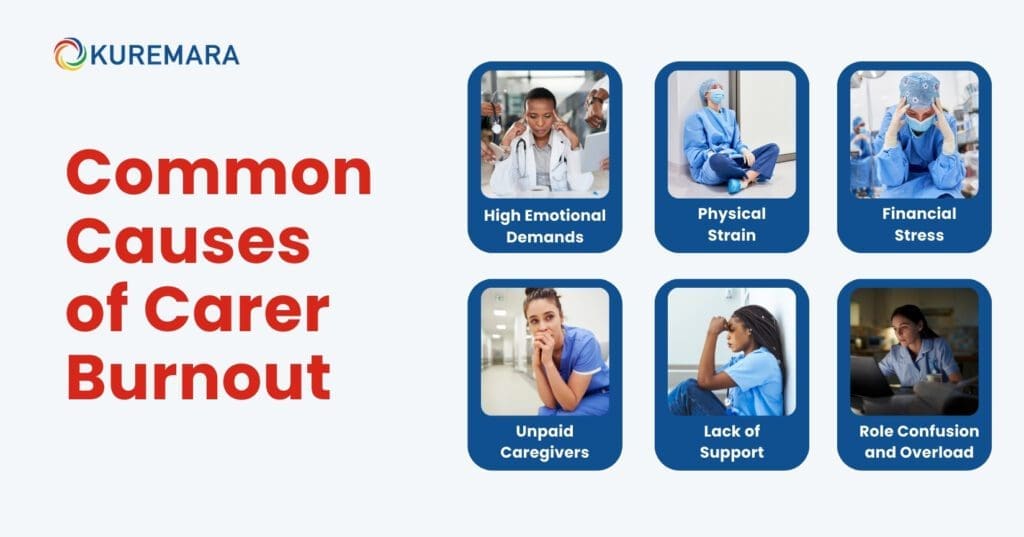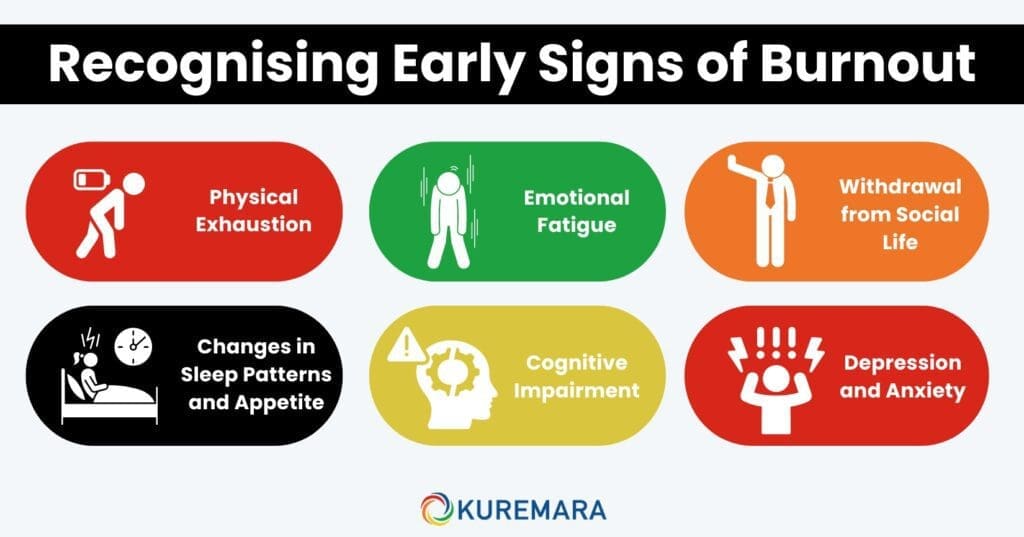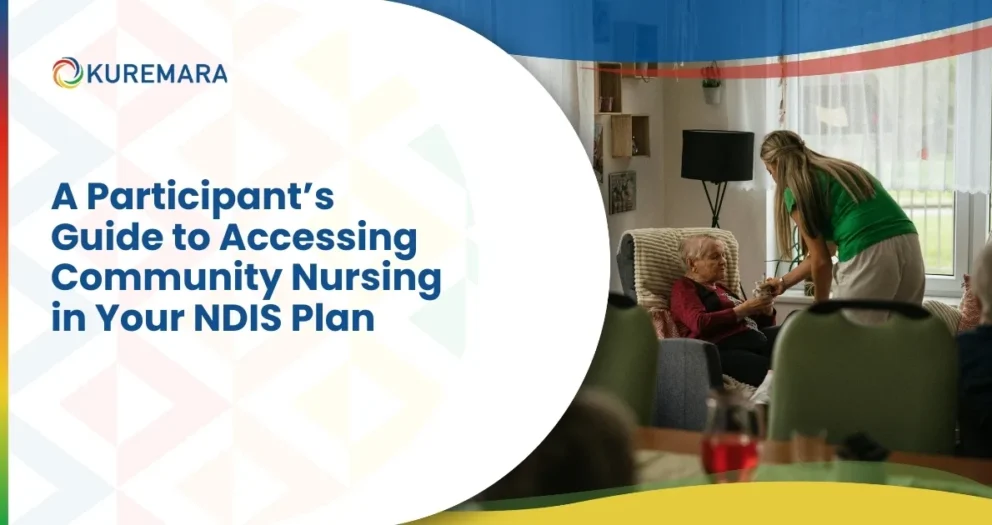Caregivers, especially those working as healthcare service providers, perform an invaluable role in supporting individuals with disabilities. Their commitment ensures that their clients live with dignity and receive the assistance they need. However, this responsibility often comes at a cost to the caregiver, leading to what is commonly known as carer burnout. Carer burnout is a state of emotional, physical, and mental exhaustion that can result from prolonged caregiving without adequate rest or support.
Burnout not only affects the carer but also compromises the quality of care they provide. As carers, maintaining personal well-being is essential for long-term success in the caregiving role. This article offers practical advice and strategies to help caregivers stay energised, avoid burnout, and sustain their ability to provide compassionate care.
Understanding Carer Burnout
Caregiver or carer burnout is a state of physical, emotional, and mental exhaustion that occurs when individuals responsible for caring for someone with a disability, illness, or age-related condition become overwhelmed by their caregiving duties. Burnout can cause caregivers to feel emotionally drained, detached, and unable to provide effective care. It arises from chronic stress, often resulting from balancing caregiving responsibilities with personal life and work. Over time, without proper support, this stress can escalate into burnout, affecting both the caregiver and the quality of care provided.
Burnout often stems from the overwhelming responsibility of caregiving combined with the emotional strain of seeing a loved one or client suffer from chronic illness or disability. As a result, carers may feel helpless, angry, or even resentful toward the individuals they care for, further exacerbating their stress.
“Carers were 2.5 times less likely to have good/excellent health (18.7%) compared to other Australians (47.6%)” – Source: Carer Wellbeing Survey
Common causes of carer burnout include:

Several factors contribute to caregiver burnout, including:
- High Emotional Demands: Caring for a loved one with significant health challenges, such as dementia or chronic illness, often involves managing their emotional needs along with your own. This emotional strain can lead to feelings of hopelessness, frustration, and guilt.
- Physical Strain: Caregivers may need to perform physically demanding tasks, such as lifting, transferring, or helping individuals with limited mobility. Over time, this physical effort can result in fatigue, muscle strain, or even injury if not managed properly.
- Financial Stress: Caregivers, particularly unpaid ones, often face financial strain. Many unpaid carers are forced to reduce work hours or leave their jobs altogether, leading to financial instability. A study by Carers Australia revealed that 51% of unpaid caregivers experienced reduced work hours, and 26% left work entirely to meet their caregiving demands .
- Unpaid Caregivers: Many caregivers, especially family members, provide care without any financial compensation. According to a report by The Careside, unpaid caregivers represent a significant part of Australia’s support system, with 2.65 million unpaid carers providing support. These carers report feelings of being “invisible” and overwhelmed, with nearly 45% describing themselves as exhausted from their unpaid caregiving roles.
- Lack of Support: Many caregivers feel isolated and unsupported. When caregivers don’t have access to external help from family members, community services, or respite care, they often bear the full weight of caregiving on their own. This isolation can lead to feelings of loneliness, resentment, and burnout.
- Role Confusion and Overload: Many caregivers struggle with maintaining their identity outside of their caregiving role. They may neglect their personal needs, hobbies, or social life. The overwhelming responsibility of caring for someone else full-time can blur the line between their role as a caregiver and their individual needs, leading to burnout.
Addressing burnout requires acknowledging its existence and taking proactive steps to prevent it from becoming unmanageable.
Recognising Early Signs of Burnout
 Recognising the early signs of caregiver burnout is crucial to preventing long-term mental and physical damage. Some of the common symptoms include:
Recognising the early signs of caregiver burnout is crucial to preventing long-term mental and physical damage. Some of the common symptoms include:
- Physical Exhaustion: Feeling constantly tired, even after a full night’s sleep. This exhaustion may manifest as chronic fatigue, headaches, or frequent illness due to a weakened immune system.
- Emotional Fatigue: Caregivers may experience heightened emotions, becoming easily frustrated, angry, or feeling helpless and overwhelmed. Guilt is another common emotion, especially when caregivers feel they aren’t doing enough for the person in their care.
- Withdrawal from Social Life: Caregivers often withdraw from social interactions, isolating themselves from friends, family, and activities they used to enjoy. This isolation can lead to loneliness and feelings of resentment.
- Changes in Sleep Patterns and Appetite: Difficulty sleeping or sleeping too much, as well as changes in appetite (overeating or under-eating), are common symptoms of burnout.
- Cognitive Impairment: Struggling to concentrate, forgetfulness, and trouble making decisions are signs that mental fatigue has set in.
- Depression and Anxiety: Prolonged stress and burnout can lead to clinical depression or heightened anxiety. These conditions make caregiving even more challenging, creating a harmful cycle of stress and guilt.
Burnout in NDIS Service Providers
Caregivers working within the NDIS (National Disability Insurance Scheme) face unique challenges due to the demanding nature of their role. NDIS service providers are tasked with ensuring that individuals with disabilities receive the care they need, which can often be both physically and emotionally taxing. Many NDIS carers manage multiple clients, adding to their workload and stress.
Burnout in NDIS service providers not only affects the carer but can also reduce the quality of care given to clients. Recognising the symptoms of burnout and seeking support is essential for those working in these high-pressure environments.
Practical Tips to Stay Energised
Avoiding burnout requires a multifaceted approach that includes self-care, lifestyle adjustments, time management, and seeking external support. Here are some practical tips that can help carers stay energised and avoid burnout.
Self-Care Tips for Carers
Self-care should be a priority for all caregivers, as it directly impacts their ability to provide effective care. By taking care of their physical, emotional, and mental well-being, carers can ensure that they have the energy and resilience needed for their demanding roles.
Physical Self-Care Strategies
- Exercise regularly to reduce stress and improve mood. Physical activity releases endorphins, which naturally boost energy levels and alleviate stress.
- Maintain a healthy diet that includes fruits, vegetables, whole grains, and lean proteins. Proper nutrition helps prevent lethargy and supports overall well-being.
Emotional Self-Care for Carers
- Set aside time for personal relaxation activities that bring joy, such as reading or listening to music.
- Express emotions by journaling, talking to a trusted friend, or seeking professional counseling.
- Build a Support Network: Reach out to friends, family, or local support groups. Sharing your challenges with others who understand your situation can provide emotional relief and practical advice.
Mental Self-Care Tips
- Set boundaries and learn to say no when necessary. It’s important not to overextend yourself.
- Engage in mentally fulfilling activities, like puzzles or hobbies that provide a sense of accomplishment.
- Take Regular Breaks: Scheduling time away from caregiving responsibilities is crucial. Use respite care services or ask for help from family members to take time off, whether for a few hours or days.
Healthy Lifestyle Approaches
A healthy lifestyle is essential for preventing burnout. This includes attention to nutrition, physical activity, and rest.
- Nutrition: Carers should prioritise a balanced diet rich in nutrients that fuel both body and brain. Avoid processed foods that can cause energy crashes.
- Exercise: Regular physical activity can help alleviate stress and improve mental well-being.
- Rest: Establish a consistent sleep routine to ensure that you get the rest your body and mind need to recover from daily caregiving duties.
Conclusion
Carer burnout is a significant challenge for anyone in a caregiving role, particularly for NDIS service providers who manage the demanding needs of individuals with disabilities. However, burnout is not inevitable. By recognising the early warning signs and adopting practical self-care strategies, carers can maintain their health, well-being, and energy levels. This allows them to continue delivering compassionate and effective care without sacrificing their own mental, emotional, and physical wellness.
Ultimately, caregiving is a long-term commitment that requires balance. Focusing on self-care, managing time effectively, seeking support, and using resources like the carer burnout scale NDIS can help prevent burnout and ensure that carers remain resilient in their roles. By staying proactive, carers can maintain the energy they need to provide sustainable, quality care for others while nurturing their own well-being.
 care@kuremara.com.au
care@kuremara.com.au





